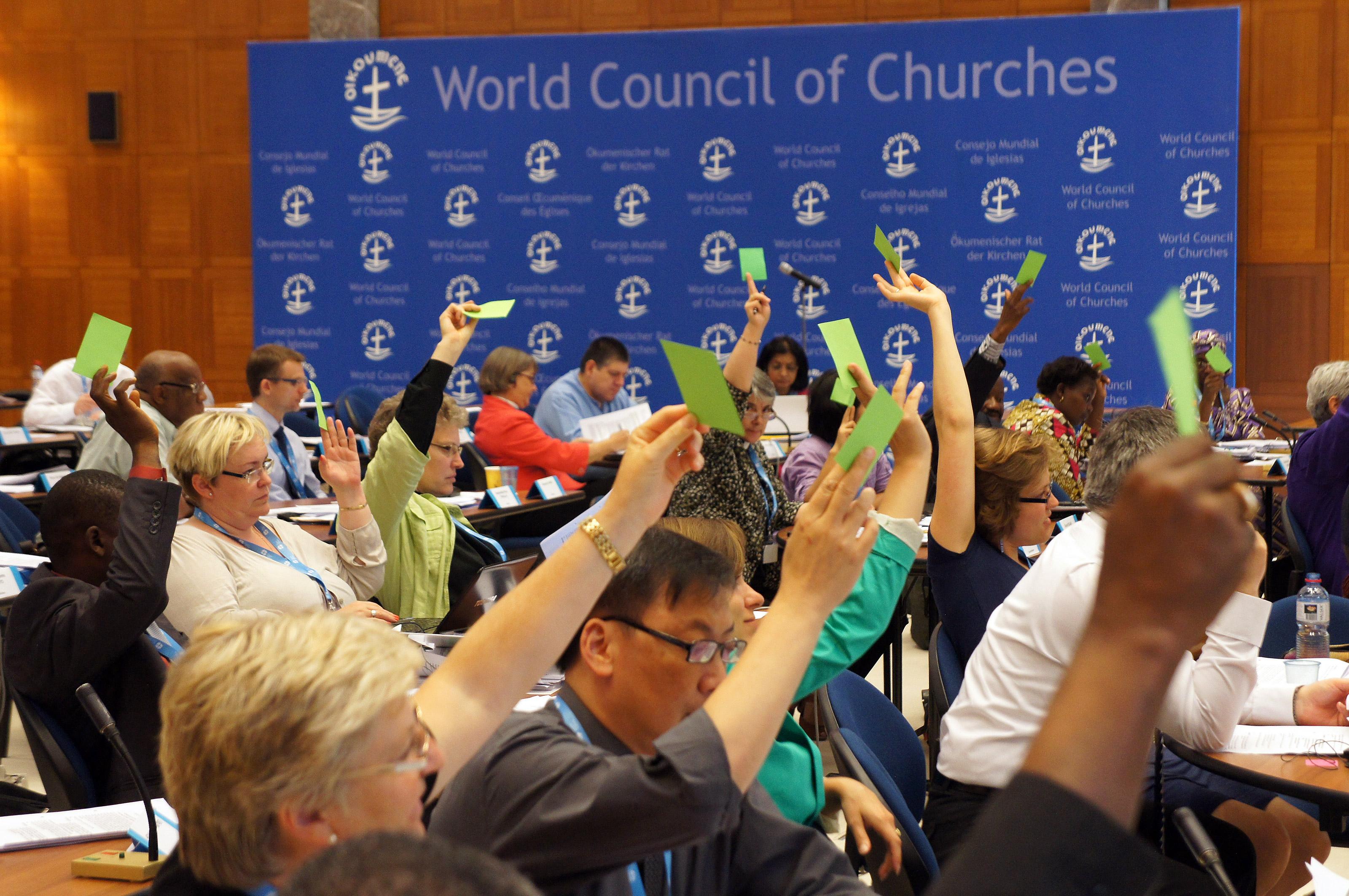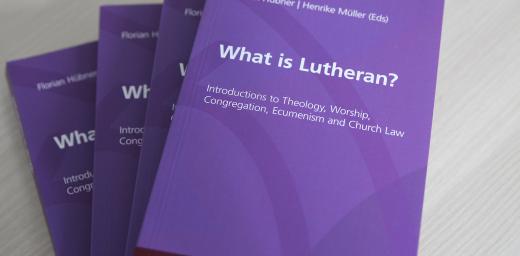Stronger Advocacy Urged to End Syria’s Humanitarian Disaster

Council members vote on a recommendation. © LWF/S. Gallay
LWF Council Actions Seek Greater Engagement for Peace and Justice
(LWI) In addition to public statements and other actions taken at its 2013 meeting, the Council of The Lutheran World Federation (LWF) adopted resolutions for LWF’s advocacy on the humanitarian impact of the conflict in Syria; Christian witness in the Middle East; gender justice; climate change; youth unemployment and the global financial crisis.
The Council appealed for an end to the violence and human rights violations in Syria, urging all parties to protect the people and refrain from supplying combatants with weapons.
LWF member church representatives from around the world called on the Syrian government and opposition forces to allow immediate international humanitarian access to those in need in the wake of the ongoing violence.
The LWF governing body noted that an estimated 93,000 people have died in the fighting in the past two years, including more than 1,300 children under the age of 10. In addition more than 1.5 million refugees have fled the country and 4.5 million people have been displaced internally.
“The tragedy of this violence is matched only by the humanitarian disaster that has touched the lives of all Syrians,” the Council noted at its 13-18 June meeting in Geneva.
The LWF governing body urged the international community to support internally displaced persons and refugees who have been forced to flee the Syrian conflict, and renewed support for those pursuing dialogue.
“As a global communion of churches, we grieve that religion is being used as a weapon to perpetuate the conflict in Syria. We reject violence being perpetrated in the name of God,” the Council said.
Noting its special concern for Christians in Syria, the LWF also paid tribute to their desire to live in peace with their neighbors of other faiths and cultures, and cautioned: “The rich religious and ethnic tapestry that has characterized Syria for centuries is at risk of fraying beyond repair.”
Middle East
The Council affirmed LWF’s long-standing commitment for the recognition of Christians throughout the Middle East as integral to the region .The LWF governing body noted that current developments in the region place Arab and Middle East Christians in an existential crisis, with some Christian communities not knowing if they will be able to remain in the geographic areas their people have inhabited since the beginning of Christianity.
The Council affirmed its support for “those Christians in the region who want to remain in their countries with their people” and encouraged “our Christian sisters and brothers as they work for peace based on justice in their respective countries.” It expressed gratitude for the Lutheran ministry and work being carried out through the Evangelical Lutheran Church in Jordan and the Holy Land and the LWF, adding that “these help support the continuity of Christians in the Middle East, both in holistic mission and in diakonia.”
Gender Justice
The Council reiterated LWF’s long-standing commitment to gender justice. It encouraged the LWF Communion Office to develop a proactive process to encourage member churches and partner agencies to get involved in the 58th session of the UN Commission on the Status of Women session. The meeting in March 2014 will focusing on the challenges and achievements in the implementation of the Millennium Development Goals for women and girls.
Youth Unemployment
Council members called for greater awareness on youth unemployment and for public and private sectors players as well as unions to work together to increase job opportunities for young people.
The LWF Council urged countries to promote economic policies and fiscal incentives to combat youth unemployment, saying it could not remain silent in the face of 73 million young adults without gainful employment worldwide.
Council member Ms Danielle Catherine Leker, a social worker from the Netherlands explained the increasing difficulty for young people to secure employment, despite having educational qualifications. If they are employed, most of the time they are hired on short-term contracts, she added. “Sometimes it seems pretty hopeless. It is a big question for my friends and me: are we ever going to find a steady job?” she asked.
Mr A. Elijah Zina, also a social worker, from Liberia, said that most youth in his country are not employed, or lacked secure jobs. He challenged churches in the Lutheran communion to take the lead in advocating for youth employment. "The issue of unemployment should not be taken for granted. It is very serious,” he added.
Global Financial Crisis
The Council also commended the Säo Paulo statement on “International Transformation for the Economy of Life”, which was adopted in 2012 at a meeting held on economic, social and ecological justice involving the LWF, World Council of Churches , the World Communion of Reformed Churches and the Council for World Mission.
It recommended the statement to the member churches for study and advocacy, and encouraged the Communion Office to continue engaging in the follow-up processes.
Other Council resolutions on recommendations from the Committee for Advocacy and Public Voice included endorsement of the “Welcoming the Stranger: Affirmations for Faith Leaders,” and a call on LWF member churches to share the document with other churches and interfaith bodies in their respective countries. The faith affirmations were publicly released on 12 June in Geneva at a UN High Commissioner for Refugees consultation with non-governmental organizations. The main speakers included LWF President Bishop Dr Munib Younan.
Climate Change
A resolution on climate change affirmed the recommendations of the LWF delegation to the December 2012 UN Climate Conference in Doha, and called on the LWF and its member churches to continue engaging in UN processes related to the Framework Convention on Climate Change and the Conference on Sustainable Development, “particularly through ecumenical, interfaith and youth networks.”
The Lutheran communion was also tasked with developing a holistic climate change strategy that addresses advocacy, carbon emissions, training and awareness raising, and humanitarian assistance. Further engagement was encouraged with civil society in lobbying governments for increased action on mitigation and adaptation.
Emphasis was placed on exploring the issue of climate change through theological reflection in Lutheran, ecumenical and interfaith frameworks. The Council urged commitment to becoming carbon-neutral at the communion, national, congregational and individual level, and that churches and the LWF address the negative impacts of social inequality and unsustainable consumerism.





